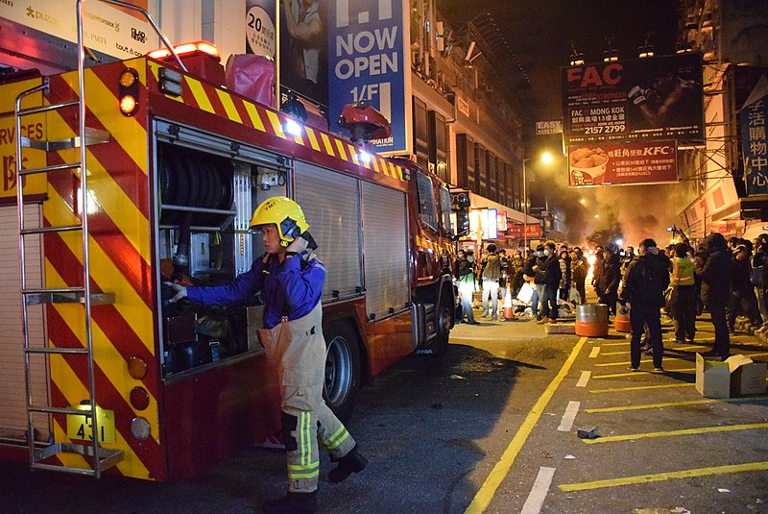It’s 1940 and Nazi officers are visiting Casablanca which at this stage of World War II is controlled by the German puppet regime in France called Vichy France. In their attempts to apprehend “an enemy of the Reich,” the German officers meet with and question Richard Blain, the American owner of the eponymous Rick’s Cafe, a nightclub and illicit casino.
As they discuss German aspirations in the war, one of the German officers asks Rick (played by Humphrey Bogart) what he thinks of the Germans occupying his “beloved Paris.” He answers, “It’s not particularly my beloved Paris.”
Another German officer then asks if Rick can imagine Germans occupying London. Rick again deflects saying, “When you get there, ask me.” But when a German major asks Rick about invading New York City, Rick fires back: “There are certain sections of New York, major, that I wouldn’t advise you to try to invade.”
While it was a clever joke back then and in certain ways probably true, today the breakdown of civil authority is becoming a regular feature of the current world (dis)order. The U.S. State Department now warns American travelers against visiting many areas of Mexico as those areas seem to be only tenuously under the control of the Mexican government. Recent violence in Cuidad Juarez and Tijuana seems to have prompted the heightened warnings.
While Mexico’s violence appears to be the work of well-organized drug gangs, in other places across the globe, other kinds of civil strife and cross-border conflict are good indicators that centralized administration is being undermined. The Democratic Republic of the Congo has been the site of ongoing civil unrest for over 30 years. Those resisting a military takeover of the government in Myanmar are now part of what is being described as a civil war.
The sudden economic collapse of Sri Lanka earlier this year—attributed to mismanagement by the country’s long-time leader now in exile—led to uprisings in the street and a change in leadership.
Ukraine, of course, has been dismembered by an aggressive Russia seeking to neutralize the country and prevent its affiliation with NATO while reincorporating areas with Russian majorities into Russia proper. Short of defeating Russia and expelling it from Ukraine’s occupied territories, it hard to see how Ukraine does not become a failed state.
The likelihood of victory now seems slim. Ukraine is vastly outgunned and there is little hope that NATO countries will come to its rescue and risk a possible nuclear war with Russia. Even if the war results in a stalemate, Ukraine has lost much of its industrialized area to Russian occupation and the Russians are threatening to cut Ukraine off from the Black Sea, leaving the country landlocked. If what remains of Ukraine becomes a failed state unable to maintain its stability, it will be one right on the European Union’s doorstep.
A map illustrating how the world’s countries fared in an evaluation by The Fund for Peace’s Fragile States Index (formerly the Failed States Index) suggests more instability ahead across the world. The largely settled borders following the end of World War II are now starting to come increasingly unraveled.
It should be no surprise that this instability is arising in a time of strained resource supplies and thus high prices, especially for food and energy. Increasingly, severe droughts across the world are also making water a scarce resource. When resources are scarce, people tend to fight over them even if they say they are fighting over something else. And, they often challenge the authority of those weakened by diminishing access to resources including central governments.
Mexico’s oil exports have dropped substantially from before the 2008 financial crisis though they have recovered somewhat. This has meant that Mexico has had fewer resources to deal with its problems (some of which are cited above) in the last decade.
Russia, by contrast, seems emboldened by high energy and commodity prices since its economy is a large net exporter of grain, oil, natural gas, and minerals.
Many take the stability of European countries as a given. But the now straitened circumstances in which these countries find themselves due to the steep decline in Russian energy deliveries will test that stability. It will be informative to see if the Fragile States Index is adjusted for new circumstances on the European continent come 2023 and whether other countries not now in the news experience increased instability.
Photo: Mong Kok (Hong Kong) civil unrest 2016 with fireman in foreground. By Iris Tong for Voice of America. Via Wikomedia Commons. https://commons.wikimedia.org/wiki/File:2016_Mong_Kok_civil_unrest_fireman.jpg






